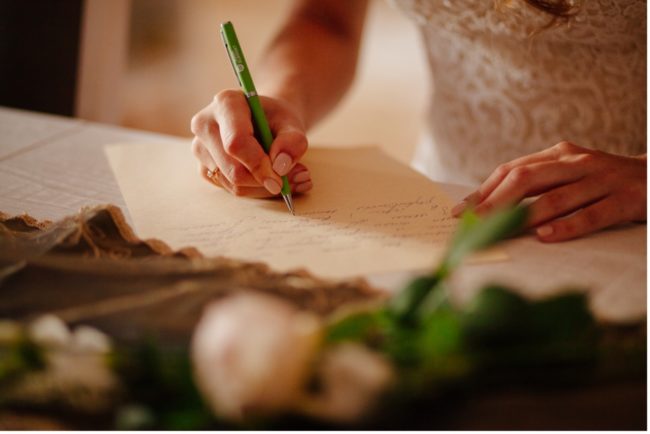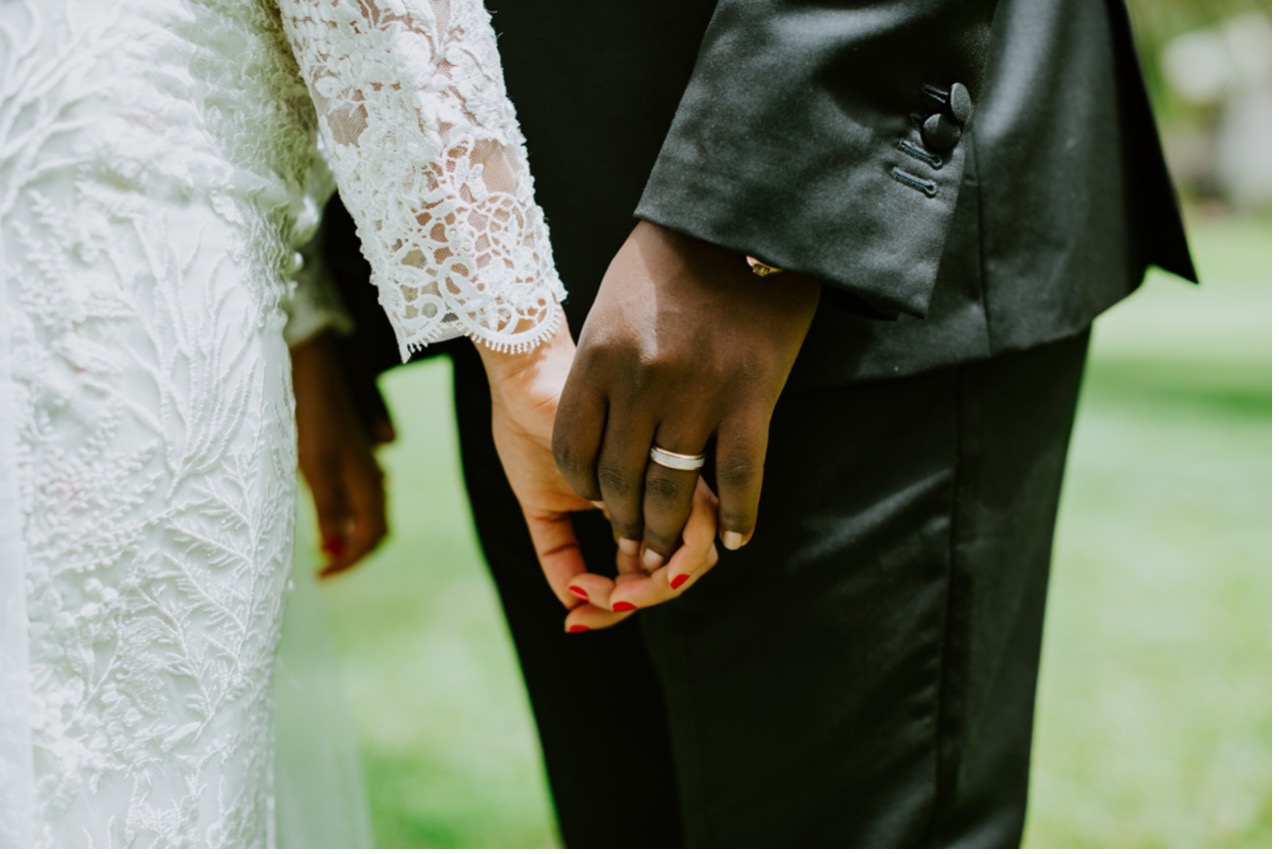A vow renewal is a special time for a couple. It’s the opportunity to reaffirm the promises you made to each other when you first got married, and it’s a chance to celebrate your marriage in its current state with close family and friends. But, for some couples, they might be hesitant to do a vow renewal because they don’t want another “wedding.” But, vow renewals aren’t a wedding. Here’s more on what they signify and why you should consider having one!
What Vow Renewals Are
Like just mentioned, vow renewals are affirmations of prior promises. When you get married, you promise a variety of things to your new spouse, typically known as vows. While many couples go without doing a vow renewal, others find that a vow renewal is a great way to intimately renew the promises you’ve made to each other, and maybe add a couple more promises into the mix as you head into the later stages of your life together. It’s common for couples to exchange rings during their vow renewal as well (silicone wedding bands are great for this!).
How Many Times Can You Renew Your Vows?
Honestly, you can renew your vows for an unlimited number of times. Some couples like the idea of renewing their vows to each other each year on their anniversary. Others prefer to do it after a large milestone or obstacle, such as sickness or even infidelity. And, others wait to do it after a certain year of marriage — some 25 or more years after getting married. You can renew your vows as much as you want, whenever you want.
Who Gets Invited?
Because vow renewals are you and your spouse recommitting to each other, you don’t need to stress about inviting as many people as you probably did for your wedding. No worries about sending a save-the-date to your Great-Great-Aunt Susan that you have only met twice in all your life. Instead, focus on inviting close friends and family. Or, if you’re really looking to keep the ceremony intimate, consider not inviting anyone at all. A vow renewal isn’t about proclaiming your vows in front of others, it’s about recommitting to your spouse. The only person who needs to hear the vows said is your spouse.

Source: shevtsovy/Shutterstock.com
Do I Need Special Attire?
Nope! If you want to wear a dress or suit, go ahead. T-shirt and jeans? That works, too. Chances are, you and your spouse will probably decide on something in the middle. Probably a nice cocktail dress and dress pants with a button down. Or maybe you’ll wear a jumpsuit and they’ll wear khakis. Or, maybe you’ll renew your vows on Halloween and you’ll both wear costumes. When you decide on a date, also decide on the other logistics, such as your attire, guest count and whether or not you’re hosting a social afterwards.
Is a License or Officiant Necessary?
Not at all. Since you’re already legally married, there’s no need to procure another license. Saying your vows again doesn’t negate your current marriage! There’s no pressure in choosing a certified and licensed officiant to host your vow renewal, either. You can ask a family member or close friend to serve as your officiant the day-of! You could also consider forgoing the officiant role and instead just say your vows directly to each other, especially if you’re not inviting any guests.
Why You Should Have a Vow Renewal
Vow renewals are an important part of a marriage, especially for those who are interested in recommitting to their spouse. Just like you tell your spouse you love them frequently, why shouldn’t you say your vows to your spouse frequently? Plus, many couples choose not to write their own vows during their wedding ceremony, instead opting for traditional vows seen at many standard wedding ceremonies. A vow renewal allows you the opportunity to say all the things you didn’t during your original wedding ceremony or even tell your spouse what they’ve taught you through the years. A vow renewal doesn’t have to be much more than affirming promises to each other. You don’t have to answer any questions, light any candles or do anything else during your vow renewal that you don’t want to. Some couples will pour sand in a unity ceremony, but you’ve already been united so simply saying the vows to each other is usually enough.

Source: shevtsovy/Shutterstock.com
How Long Should My Vows Be?
That’s a great question. Your vows don’t need to be much longer than a few minutes. In fact, if you’re not much of a public speaker, they don’t have to be any longer than a minute! But, if you find yourself feeling a bit more romantic and wordy than usual, longer vows are a good option as well. Don’t be afraid to put your heart and soul into them. These are your vows, after all!
Do I Need to Give My Spouse a Gift?
Since it would technically be your anniversary, you should consider getting your spouse a gift. A set of stackable silicone rings, a luxury watch or even a weekend trip to celebrate your vow renewal are all good gift ideas for you to give your spouse. If you invite others to your vow renewal, you might have some of the guests bring gifts to you. While you certainly don’t need to require them — or expect them — some people feel obligated to bring gifts to events they’re invited to. Most of the gifts you’re given at your vow renewal will probably be cards with cash or gift cards in them, if at all.
Should I Write My Vows Down?
Short answer? Yes. Longer answer? Writing your vows down will help you organize your thoughts and help you memorize your speech. Even if you are confident that you’ll know what to say, sometimes people choke up at the last minute. A vow renewal is a big moment, and it typically means that you’ll want to have practiced a bit beforehand.

